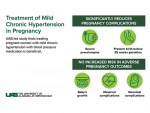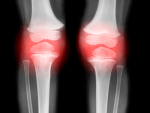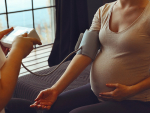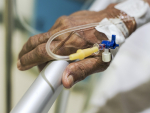Displaying items by tag: department of biostatistics
Results showed longer duration of hypertension is related to higher risk of stroke, higher average systolic blood pressure and a need for more classes of antihypertension medication.
The UAB REGARDS study, the cornerstone health disparities research in stroke and brain heath, has received another five years of funding from the NIH.
Results from the Chronic Hypertension and Pregnancy trial found treating preexisting mild chronic hypertension in pregnant women is safe from both the mom and baby. Results published in April 2022 have since led to changes in national guidelines.
Tagged under
UAB is one of 15 sites selected by the NIH to study the increasing prevalence of diabetes in youth, specifically in Black and Hispanic minority groups.
Tagged under
- release
- school of medicine
- oneal comprehensive cancer center
- school of health professions
- department of nutrition sciences
- diabetes research center
- school of public health
- department of biostatistics
- department of health care policy and organization
- public health research
- college of arts and sciences
- department of psychology
The ASA has announced George Howard, DrPH, as the David G. Sherman Lecture Award winner for his contributions to the stroke field.
Tagged under
Using data from the REGARDS cohort, UAB researchers found the impact of certain stroke risk factors vary with age.
Tagged under
The first large multi-ancestry genetics study of osteoarthritis, or OA, has found 10 novel OA-associated genetic loci, and results showed some of the OA-associated regions are robustly found in every population ancestry studied.
Tagged under
- release
- school of medicine
- department of medicine
- department of surgery
- department of cell developmental and integrative biology
- division of pulmonary allergy and critical care medicine
- school of public health
- department of epidemiology
- department of genetics
- department of biostatistics
- public health research
Noninvasive ventilation is possible in infants at limits of viability. But unlike in slightly older preterm infants, noninvasive ventilation did not show an advantage in infants of 22 weeks-0 days to 23 weeks-6 days gestational age.
Tagged under
UAB will act as the coordinating center of the P3 EQUATE Network and leverage expertise across network sites and nationally, to help train the next generation of pregnancy health equity researchers.
Tagged under
The investigators will look at diet’s impact on mobility, physical and cognitive function, as well as on pain, fatigue, sleep, mood and anxiety, in people with multiple sclerosis
Tagged under
Improving your diet can help protect and maintain brain health. Learn more about best dietary practices by joining the UAB School of Public Health on April 12.
Tagged under
UAB-led national study shows using blood pressure medication to treat pregnant women with chronic hypertension improves pregnancy outcomes, including a decrease in severe preeclampsia and preterm birth.
Tagged under
Consortium led by UAB researchers in the UAB Heersink School of Medicine and School of Public Health received additional funding to further study chronic hypertension and preeclampsia epigenetics participants enrolled in the CHAP trial.
Tagged under
Christina J. Glenn is the first Doctor of Public Health with a concentration in biostatistics graduate from UAB’s School of Public Health.
Tagged under
The RURAL Heart and Lung Study clinic will bring to rural communities technology that provides access to diagnostic tests that are not routinely done in rural settings. UAB researchers will examine medical, lifestyle and behavioral factors that contribute to higher health concerns in residents of Dallas and Wilcox counties.
Tagged under
The 72-year-old patient was unable to mount her own immune defense against the SARS-CoV-2 virus because of chronic lymphocytic leukemia, which compromises normal immunity and immunoglobulin production.
Tagged under
Observational clinical research of COVID-19 patients can help clinicians better understand how the previously unknown SARS-CoV-2 virus acts, and findings from this research can better inform treatment and vaccine design.
Tagged under
A study of ice and fire: Research by UAB nutritional epidemiologist Suzanne Judd, Ph.D., and colleagues identified 19 foods and four lifestyle elements that raise or lower inflammation.
Tagged under
The biomarker can identify beta cell death in children and adults with recent-onset Type 1 diabetes and in antibody-positive at-risk subjects before disease onset.
Tagged under
- release
- school of medicine
- school of public health
- department of medicine
- department of microbiology
- department of surgery
- department of pathology
- department of biostatistics
- division of endocrinology diabetes and metabolism
- division of clinical immunology and rheumatology
- comprehensive diabetes center
The RURAL Study will allow researchers to learn what causes the high burden of heart, lung, blood and sleep disorders in Alabama, Kentucky, Louisiana and Mississippi.
Tagged under



















